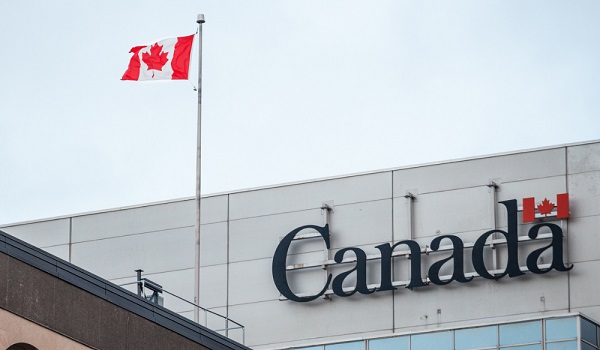Overwhelming happiness express by refugees over the golden opportunity to live in Canada
In a remote refugee camp in Ethiopia, where Kadija Abdi Ahmed has lived since fleeing neighbouring Somalia as a teenager, there are few computers and only patchy access to the internet.
When she does get a rare chance to go online, the 30-year-old nurse searches for Newfoundland on YouTube to discover more about her new home.
Ms. Ahmed has just had her visa approved after accepting a job near St. John’s as a personal-care attendant, through a pilot program designed to match vacancies in Canada with qualified refugees.
She said she was ecstatic when she received the job offer in Canada, after almost half a lifetime of uncertainty. “I was excited. I was very, very happy. Because I couldn’t imagine I would have success with this opportunity – this golden opportunity for me.”
The federal government’s Economic Mobility Pathways Pilot (EMPP) gives refugees such as Ms. Ahmed a job matching their skills and a route to permanent residence.
Since being launched in April, 2018, the pilot has helped 257 refugees and other displaced people fill job vacancies here. The pilot is set to be expanded and then made permanent, according to Immigration, Refugees and Citizenship Canada.
Ms. Ahmed is waiting for travel documents so this spring she can embark from the Aw-Barre refugee camp, near the Somalia border, to Mount Pearl, for her new role with Newfoundland and Labrador health services.
She is heartened to learn, through her research online, that Canadians are a welcoming and open-minded people.
“In Canada you can learn whatever you want. No one gives you pressure based on your gender,” she said. “When I was in high school, my neighbours always used to say, ‘Why are you studying? You are a woman, you are a female and you will end up in marriage.’”
Ms. Ahmed’s mother died weeks after giving birth to her, which motivated her to become a nurse, with hopes of eventually qualifying as a gynecologist. When she was a girl, the Islamist militant group al-Shabaab went on the rampage in her hometown of Lafoole and a close family member was shot and killed while drinking coffee in a café.
As a teenager, she escaped with an aunt over the border to Ethiopia, settling in a refugee camp near Jijiga.
After completing school, she received a scholarship to go to university – the first woman in her family to do so. She then passed a demanding nursing course, all the while volunteering at a medical clinic.
She plans to volunteer in Canada, as she has done in Ethiopia.
“It’s a new beginning – a new life, a new start,” she said.
Dana Wagner, co-founder of TalentLift, a non-profit recruitment company that matches refugees with employers, said the program gives refugees, welcomed to Canada as skilled employees, a sense of self-worth.
Refugees who have endured extreme hardship also “have remarkable drive and resilience,” she said. But most employers are unaware that the pathway to Canada exists.
Unlike claims for asylum from people fleeing persecution in their home country, the pilot program links refugee resettlement with economic immigration.
It’s a program that raises concerns for Yvonne Su, assistant professor in interdisciplinary refugee and diaspora studies at York University. She warned against creating categories of refugees that are rooted in their economic value, rather than just welcoming people because they are in danger and deserve help.
“If a program like this becomes very popular then we will have refugees that are seen as ‘ideal refugees’ who have a well-founded fear of persecution and have huge economic potential so they are more deserving of a faster visa-immigration process,” she said.
In London, Ont., Afghan fibre optics engineer Najeebullah Nasiri and his family have settled into the community, after arriving a year ago through the pilot program.
Mr. Nasiri, a Hazara, fled the Taliban to Pakistan. He had worked in fibre optics in Kabul after graduating from university, including for companies with funding from the United States, making him a potential target for the Taliban.
In April, 2023, he arrived in Toronto with his wife, a seamstress, and two young daughters on what he said was “an unforgettable day.”
Before leaving, he had showed his family Google Maps images online of London, including schools and parks. But when his three-year-old daughter Hanna arrived in Toronto to find the park was nowhere to be seen, she was sorely disappointed – and thought she was not in Canada.
“She was crying, ‘I’m going to Canada! Here is not Canada!’” he recounted.
Now, he said, she plays in the local park she coveted, as well as in the snow during her first Canadian winter.
He said being hired to work in his field of expertise in “my dream country” has been transformative, pointing out that those who come to Canada through the program start work and begin paying taxes immediately.
Erin Kerbel, a spokesperson for Immigration, Refugees and Citizenship Canada, said “Canada has set ambitious targets for the EMPP and will continue to welcome skilled refugees and other displaced individuals through this pathway.”
This article was first reported by The Globe and Mail
















